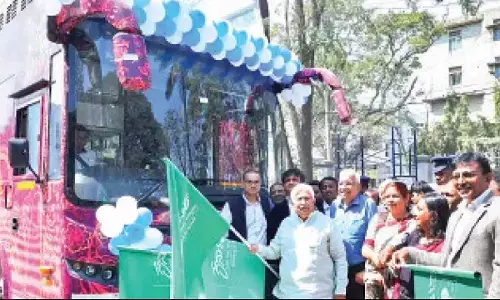Labour reforms key to fuel manufacturer growth

Labour reforms key to fuel manufacturer growth
The incident at Apple’s contract manufacturer Wistron’s Narasapura facility in Bengaluru is a sad reminder of what ails the Indian system
The incident at Apple's contract manufacturer Wistron's Narasapura facility in Bengaluru is a sad reminder of what ails the Indian system. It flags up the loopholes that need to be addressed, failing which India's aspiration to be a manufacturing hub for the world will remain only as a pipe dream. Preliminary investigations have found out that the ruckus created by workers was fuelled by non-payment of wages by labour contractors to temporary workers. It indicates complex labour rules which restrict companies to take temporary workers on an assignment or contract basis.
Though the Industrial Relations Code, 2020 has a provision enabling industries to employ workers on a fixed-term contract for short-term jobs, it is still a prevalent practice to employ third-party labour contractors to hire temps. This practice has to be stopped giving protection to workers in terms of working hours, wages, and other related matters.
The resolution of the Wistron incident is critical for showcasing India as an attractive destination for global manufacturers. Apple's contract manufacturers -Wistron, Foxconn, and Pegatron (all are Taiwan-based firms)- remain key to making India a global component manufacturing and cell phone assembly hub. All three have committed investments worth up to $850 million in India over the next five years under the newly announced PLI (production-linked incentives) scheme. So, expediting the resolution of the Wistron incident is vital for gaining the trust of foreign investors who are actively looking at diversifying their manufacturing base beyond China.
Also, India has set ambitious goals of growth and employment by 2025, factoring in the successful implementation of the PLI scheme. For instance, India eyes 20 per cent share of GDP coming from the electronics manufacturing sector by 2025. Similarly, around three lakh jobs are likely to be generated from this initiative. If these goals are to be realised, then India's labour laws are to be simplified to suit the emerging environment. Further, with the developed nations in general and the US in particular, trying to reduce their dependence on China in the wake of Covid pandemic which has its origins in the communist country, it's the right time for India to grab the opportunity and emerge as a manufacturing powerhouse for the world. That can only happen if the country takes up comprehensive reforms in labour laws and protects the interests of the workers.
While the fiasco related to Apple's contract manufacturer has grabbed eyeballs, the ongoing labour unrest at Toyota Kirloskar Motors' manufacturing plant in Bidadi- outside Bengaluru- has been relatively less reported in the media. It shows there are many big and small manufacturers reeling under the labour issues. Usually, big names involving large MNCs get the government support in resolving issues, while many small and medium industries are left high and dry.
If India has to be a manufacturing hub, the system also has to protect these SMEs through investment-friendly labour laws and other norms. Then only, the country can gainfully employ its burgeoning young population to cash in the demographic dividend.

















